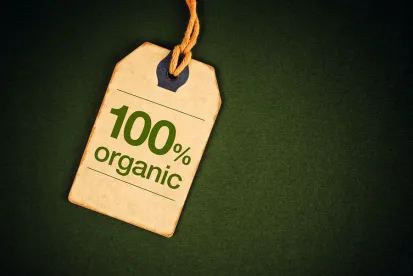The Ninth Circuit Court of Appeals recently reversed in part and affirmed in part a Northern District of California ruling (discussed previously, here) concerning the “All Natural Fruit” labeling on Dole’s packaged fruit products. Brazil v. Dole Packaged Foods, LLC, No. 14-17480, 2016 WL 5539863 (9th Cir. Sept. 30, 2016). The appeals court reversed the lower court’s order granting summary judgment in favor of the defendant on plaintiff’s false advertising and unfair competition claims, finding that a trier of fact could conclude that the label is misleading to a reasonable consumer. Notably, the Ninth Circuit also ruled that the district court did not err in decertifying the class where plaintiff failed to show how damages could be calculated with proof common to the class.
With respect to decertification, the Ninth Circuit found that the district court properly limited damages to the difference between the prices customers paid and the value of the fruit they brought – otherwise known as the “price premium” attributable to the “All Natural Fruit” labels. The court held that the district court did not abuse its discretion in decertifying the class because the plaintiff failed to explain how this premium could be calculated with proof common to the class. The court also rejected the plaintiff’s claim that he would be entitled to damages under a theory of “nonrestitutionary disgorgement” if a price premium were not available. Although a disgorgement award could theoretically exceed an award of restitution, the court found that this was not the case here because the portion of Dole’s profits that were wrongfully obtained equaled the price premium paid by misled purchasers. As a result, restitution and disgorgement were functionally the same remedy, the plaintiff failed to show that either could be calculated with common proof across the class, and the class was properly decertified. The panel did allow the plaintiff to pursue an individual claim for restitution and class-wide injunctive relief on remand.
Although the Ninth Circuit affirmed the district court’s decision on class certification, it reversed the district court’s order granting summary judgment for Dole on plaintiff’s deceptive advertising claims. The plaintiff argued that Dole’s labels are deceptive because the products contain synthetic citric and ascorbic acid. The FDA has not directly addressed the meaning of “natural” since 1993, when the FDA informally defined it to mean “that nothing artificial or synthetic… has been included in, or has been added to, a food that would not normally be expected to be in the food.” However, the plaintiff cited to recent warning letters the FDA sent to food sellers who described their products as “all natural” even though the products included, among other substances, synthetic citric acid. In the warning letters, the FDA stated that foods which naturally contain citric acid, such as tomatoes, could not be labeled “all natural” if synthetic citric acid had been added. These warnings were made without reference to whether the synthetic substances would “not normally be expected to be in the food.”
Multiple “all natural” labeling suits have been stayed pending the Ninth Circuit’s decision in this case. While the panel’s decision in this case is unpublished, it will be interesting to see whether other courts take the same approach in relying on FDA warning letters to determine what goods can be labeled “all natural.” The court’s decision also highlights the importance of providing a damages model that can calculate a “price premium” across an entire class of plaintiffs at the class certification stage.





 />i
/>i
